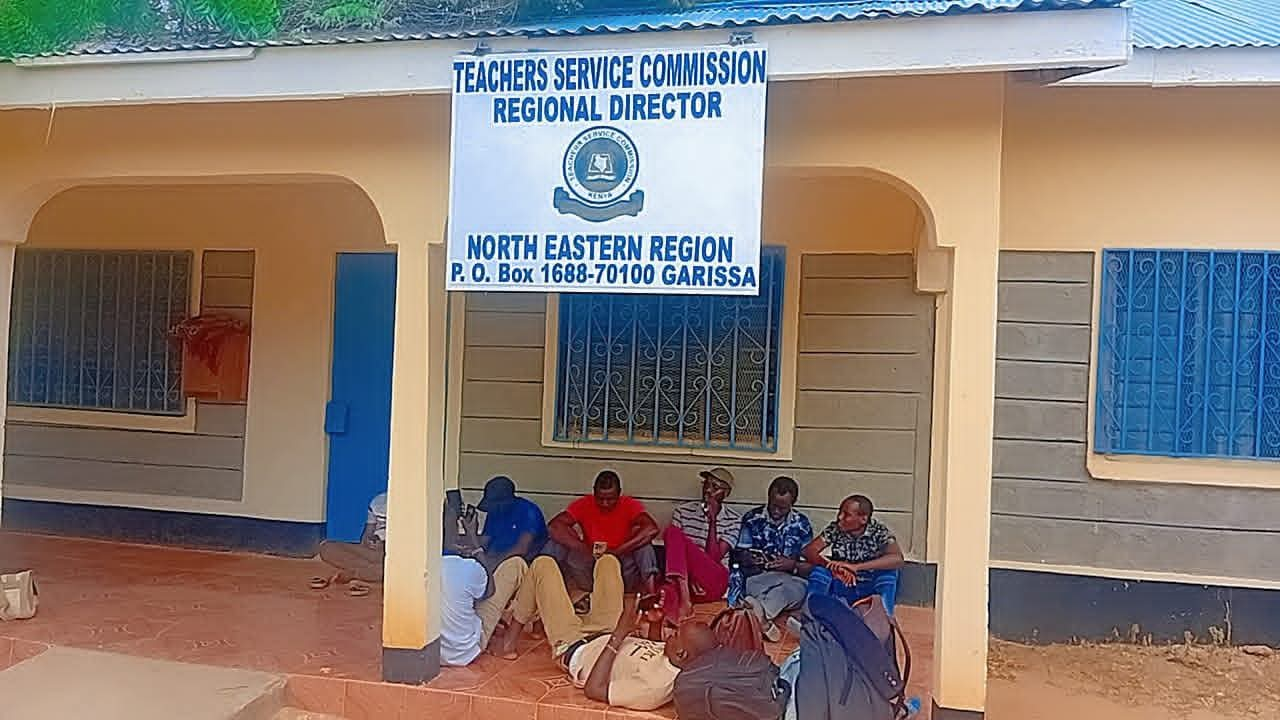The Education Cabinet Secretary, Julius Ogamba has drummed for the support of the Competency Based Education and Training (CBET) in TVET institutions to address the issue of skills deficiency in the country.
While speaking during the official opening ceremony of Kenya Association of Technical Training Institutions ( KATTI ) Capacity building Workshop for Principals, Directors, Academics, Registrars, and Examination Officers held at in Mombasa County recently, CS Ogamba said that as Kenya continues to industrialize and digitize, the need for highly skilled and adaptable workforce has never been greater.
“TVET holds the key to unlocking Kenya’s Economic potential by equipping the youth hands-on, job-ready skills that meet the demands of the 21st– century job market, as Kenya is currently facing a critical mismatch between the skills possessed by job seekers and the requirements of employers,” Ogamba stated.
Ogamba noted that according to various studies, thousands of graduates leave universities every year with academic qualifications, but without the practical competencies demanded by industries.
“On the other hand, sectors such Manufacturing, construction, hospitality and ICT are equally in dire need of skilled technicians, artisans and service providers”, he noted.
The Cabinet Secretary, further revealed that TVET Education addresses this challenges by focusing on practical, Competency- based learning that aligns with industry needs.
“With over 200 public and private TVET institutions in Kenya, the government has therefore taken significant steps to promote Vocational training as viable alternative to academic education,” he said.
ALSO READ:
TVET principals urged to promote practical work in their institutions
In the TVET institutions courses offered range from Electrical Engineering and Plumbing to culinary arts and digital skills, offering youth diverse pathways to gainful employment or self-employment.
Additionally, TVET fosters entrepreneurial minds, enabling graduates to become job creators rather than job seekers.
He also disclosed that many skilled artisans and technicians trained through TVET go out there to start their own Small and Medium sized enterprises (SMEs), thus contributing to local economic growth and innovation.
This entrepreneurial angle is especially important in the country, where the informal sector accounts for over 80 percent of employment.
He, however, revealed that for TVET to reach its full potential, strategic collaboration with key stakeholders is essential, calling on government Agencies, private sector players, development partners, and academic institutions to work together to strengthen the TVET ecosystem.
“Public and private partnerships (PPPS) can help bridge the resource gap, to help ensure relevance of training and facilitate smoother school – work transitions,” the Cs said.
Additionally, the Cabinet Secretary disclosed that Community involvement and awareness campaigns are crucial to changing the outdated perception that TVET is last resort for those who fail in academic paths.
He, also stated that highlighting success stories of TVET graduates and linking skills development to national goals such as the Bottom- Up Economic Transformation Agenda (BETA) can inspire more youth to embrace Vocational training, stating that good governance is the backbone of any effective institution in the country.
ALSO READ:
600 needy learners find hope through Meru Woman Rep’s education sponsorship
“For our TVET institutions to thrive and deliver on their mandate, we must embrace principles of transparency, accountability, inclusivity and ethical leadership”, the Cabinet Secretary told the principals who attended their Capacity building Workshop.
“As principals and directors, you are the custodians of institutional integrity and therefore your decisions must be data- driven, participatory, and complaint with established legal frameworks”, Ogamba said.
Further, he said that TVET principals are expected to uphold sound financial management practices, respect procurement regulations, and establish audit- ready systems that inspire public confidence.
“Let us remember that leadership is not just about authority, but about responsibility, how we engage staff, manage resources and treat students reflects our institutional values”, he told the TVET principals and directors who attended the Capacity building Workshop organized by KATTI held at Pride Inn Hotel in Mombasa county.
The Cabinet Secretary further urged the principals to continuously audit their governance structures and practices to ensure they serve the mission of quality technical education.
Ogamba also revealed that the transition to Competency Based Education and Training (CBET) is a cornerstone of the country’s education agenda.
Additionally, he said that the goal is to produce graduates who are not only knowledgeable, but skilled, innovative and ready to compete in the modern labour market.
“As implementers, you have the responsibility of institutionalizing CBET practices in your Curriculum delivery and assessment frameworks”, the Cabinet Secretary told the principals.
This, he stated calls for a mindset shift from content- driven instruction to learner- centred facilitation.
He, however told principals to ensure that their trainers must adopt flexible approaches, integrate workplaces simulations, and maintain strong linkages with industry.
Ogamba further urged TVET principals in the country to ensure that assessment move beyond traditional examinations to include continuous evaluation, portfolio reviews, practical assessments, and Industry based feedback.
He, however urged all examination officers to align their practices with the standards set by CDACC and ensure fair, timely, and authentic assessment processes.
“No institution can rise above the capacity of its people, hence the success of our TVET sector hinges on how well we recruit, train, retrain, and motivate our human capital”, the Cabinet Secretary noted.
He, further urged principals to promote meritocracy, equity, and transparency in their Human Resource processes.
Ogamba also told principals to develop robust induction programmes, performance management frameworks, and staff development plans.
“Let staff appraisals be constructive and aligned with personal and institutional goals”, he further told the principals.
He also asked principals to encourage their trainers and administrators to create a culture of continuous learning by pursuing further education, by attending seminars, and participate in professional development initiatives.
Turning to Staff Welfare, Ogamba further revealed that, a motivated, supported and appreciated workforce will deliver beyond expectations.
He advised TVET principals in the country to embrace professionalism in their day to day engagements.
He further told principals to treat colleagues, students, and stakeholders with dignity, patience, and empathy.
About good communication, the Cabinet Secretary asked principals to create channels for feedback and be open to diverse perspectives.
“Conflict resolution, mentorship, and teamwork all begin with intentional, respectful communication”, he noted.
“One of the major challenges we face is the persistent negative perception of TVET education, despite the enormous opportunities it presents, many parents and students still view TVET as a second choice pathway”, he explained.
He urged principals to ensure that their institutions are visible, attractive and aspirational, further urging them to use both traditional and digital platforms to tell their success stories.
“We must invest in branding through use of Website, signage, brochures and Social Media, hence organize open days, career Fairs and Community outreach programs to showcase your facilities and impact”, he told the principals.
ALSO READ:
600 needy learners find hope through Meru Woman Rep’s education sponsorship
Ogamba also advised principals to collaborate with Industry partners, county governments and development agencies to strengthen your networks and resource base.
“Let the public know that TVET is not just about skills, but it is about innovation, dignity, and national development”, he added.
The Education CS also urged principals to address the issue of mental health among students and tutors.
“Mental wellness is often overlooked, and yet it is a crucial pillar of the institutional productivity and success. With rising academic pressures, social stressors and emotional challenges among staff and students, the need for mental health support systems in TVET institutions has never been greater,” he stated.
He asked principals to mainstream mental wellness in their institutions policies, develop student and staff counselling programmes, sensitize the communities on mental wellness and work with experts to create safe, inclusive and supportive environments.
“Let us priorities mental wellness not just as a reaction but as a proactive strategy for retaining talent, fostering innovation and enhancing academic outcomes”, the CS told the principals.
Ogamba also told the principals that they have the responsibility of transforming the TVET institutions into centers of excellence that will shape the future of our youth and our country.
He also said that the Ministry of Education remains committed to supporting the principals’ efforts, hence continue to invest in policy reforms, infrastructure, and capacity building to ensure that TVET fulfills its potential as the engine of Kenya’s industrialization and social development.
“Our continued reforms and branding of TVET are bearing fruits, for instance, more than 8,000 students who sat the 2024 Kenya Certificate of Secondary Education ( KCSE ) have already opted to pursue courses in TVET and other colleges in the country”, Ogamba revealed.
He disclosed that the number is set to grow as we release the results of the ongoing application of courses under the Kenya Universities and Colleges Central Placement Service (KUCCPS), hence provides some of the evidence that TVET programmes are finally being embraced by our high school graduates, unlike the case before.
By Tsozungu Kombe.
You can also follow our social media pages on Twitter: Education News KE and Facebook: Education News Newspaper for timely updates.
>>> Click here to stay up-to-date with trending regional stories
>>> Click here to read more informed opinions on the country’s education landscape






